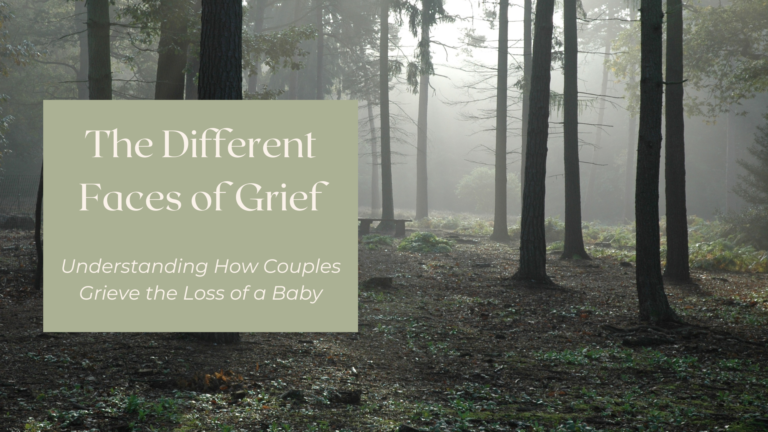How to Find Hope and Healing After Miscarriage: A Christian’s Guide to Grief
Experiencing a miscarriage is one of the most heart-wrenching journeys anyone can face. If you’re reading this after suffering a miscarriage, please know that you’re not alone, and there is hope to be found even in this dark valley.
This is a place where none of us expected to be. I know I didn’t. So today, we’re going to discuss a bit about miscarriage from a Biblical lens and give you a few ways to support yourself during this difficult time.
Understanding Miscarriage
First, it’s important to understand that miscarriage is devastatingly common. Medical professionals define miscarriage as the loss of a pregnancy before 20 weeks. Statistics show that 10-15% of known pregnancies end in miscarriage, though the actual number may be higher since many occur before a woman knows she’s pregnant.
Despite these statistics, miscarriage often feels isolating. Many women and couples suffer in silence, unsure how to process their grief or find support. This is especially true in Christian communities, where we sometimes struggle to address difficult topics like pregnancy loss.
God’s Heart for Your Loss
The Bible shows us repeatedly that God understands and cares about our grief. In Psalm 34:18, we read, “The Lord is close to the brokenhearted and saves those who are crushed in spirit.” This verse isn’t just poetic language—it’s a promise that God draws nearest to us in our moments of deepest pain.
When we experience miscarriage, it’s completely normal to feel intense grief, to question why this happened, and to experience a range of emotions that might feel overwhelming. I know that when I lost my son, I was angry at God. But you know what? He can handle all of these feelings, and His Word shows us that He understands our pain.
Finding Hope Through Faith
While grief is a natural and necessary part of healing after miscarriage, our faith offers unique comfort and hope. The Bible offers countless promises for those who are grieving. Psalm 56:8 reminds us that God keeps track of all our sorrows and collects all our tears. Matthew 5:4 promises that those who mourn will be comforted. These aren’t just nice words—they’re promises from a God who sees and cares about our pain.
Prayer becomes especially important during this time, though it might look different than before. Don’t feel like you need to filter your feelings when praying. God can handle your anger, questions, and pain. David’s psalms show us that it’s okay to be completely honest with God about our emotions.
I used to think that I needed to sound a certain way when I prayed, or say certain words to make them have meaning. But God truly doesn’t care about the formality. He wants a relationship with you. He wants a relationship where you can home to Him, fully surrendered in all of your mess.
Community also plays a crucial role in healing, even though isolation might feel safer. Consider seeking support through a Christian grief support group or sharing with trusted friends and family. Many find comfort in connecting with others who have experienced miscarriage, as they can understand the unique nature of this loss. Pastoral counseling can also provide valuable support that combines faith with practical guidance.
If you haven’t already, make sure to check out our FREE Facebook group.

Practical Steps for Healing
Give Yourself Time
Giving yourself time is perhaps the most important step in healing after miscarriage. There’s no timeline for grief, and rushing the process can hinder genuine healing. Take the time you need to process your loss, knowing that God walks alongside you in every moment. Don’t let anyone rush your healing process or make you feel like you should be “over it” by now. Speaking of this, your body will need to heal too! Don’t rush this. Give yourself grace and all the time you need.
Create Remembrance Rituals
Creating remembrance rituals can provide meaningful ways to honor your baby’s memory. Some find comfort in holding a small memorial service, while others might plant a garden or keep a special piece of jewelry. After my son died, I had a ring made from his ashes which was a beautiful way to have him with me. I wear it daily. Journaling your feelings or creating a memory box can also help process grief while maintaining a connection to your child’s memory. These tangible expressions of remembrance can become sacred spaces for processing grief and celebrating the life of your baby, however brief it was.
Don’t Forget Your Health
We touched on this just a bit already, but physical health plays a crucial role in emotional healing after miscarriage. Grief affects our bodies as well as our hearts, making it essential to focus on rest, proper nutrition, and gentle movement when you’re ready. Following your healthcare provider’s guidance for physical recovery provides a foundation for emotional healing. Remember that caring for your body is part of honoring God and allowing yourself to heal.
Say Yes to Help
Accepting help from others might feel difficult, but it’s an important part of the healing journey. Allow your community to support you through meals, household help, or childcare if you have other children. Accept offers of prayer support and emotional care from those who want to walk alongside you. Remember that Jesus Himself accepted help and support during His times of suffering.
Seek Professional Support
Professional support can provide valuable tools for healing. Consider seeking Christian counseling or joining a grief therapy group. Even just joining a free community of those who’ve experienced pregnancy loss can be helpful. These resources can offer specialized support while honoring your faith perspective. There’s no shame in seeking professional help—it’s often a sign of wisdom and self-awareness to recognize when you need additional support.
Walking Forward with Hope
As you navigate life after miscarriage, remember that healing isn’t linear. You’ll likely experience both steps forward and backward. Some days will feel lighter, while others might bring unexpected waves of grief. This is normal and part of the healing process.
Trust that God is with you in every moment, both the hard ones and the hopeful ones. As 2 Corinthians 4:18 reminds us, “So we fix our eyes not on what is seen, but on what is unseen, since what is seen is temporary, but what is unseen is eternal.”
Your baby’s life, however brief, mattered. Your grief is valid. Your hope is justified. And God’s love for both you and your child is endless.
While the pain of miscarriage may never completely disappear, it can transform over time. Many find that their grief eventually makes room for deeper faith, greater compassion, and stronger connections with others who understand this unique loss. Some discover new purpose in supporting others through similar experiences, while others find comfort in quietly honoring their baby’s memory while moving forward with hope.
Remember that healing from miscarriage is a journey, not a destination. God walks beside you every step of the way, holding your broken heart and promising hope for the future.






